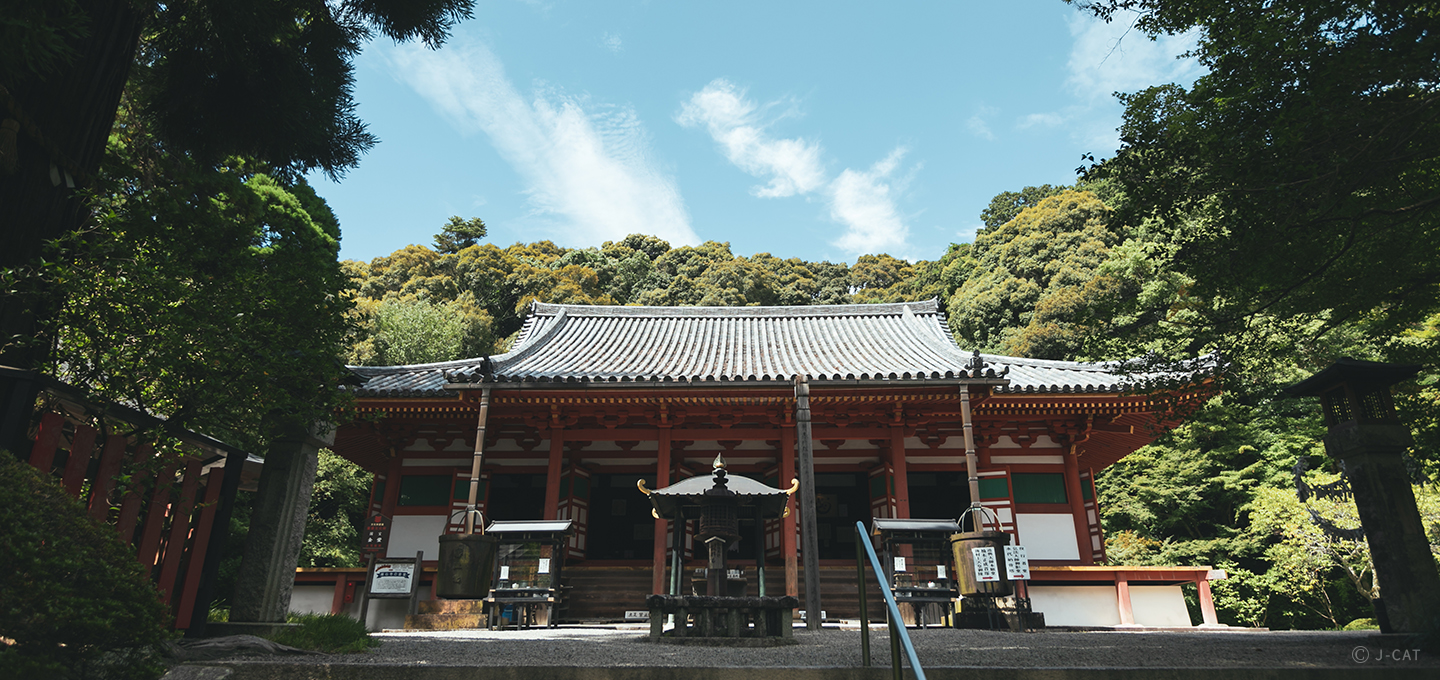
Special Experience
Osaka
A Priest Guides the Way in Kanshinji’s Kondo Hall for Meditation and Matcha
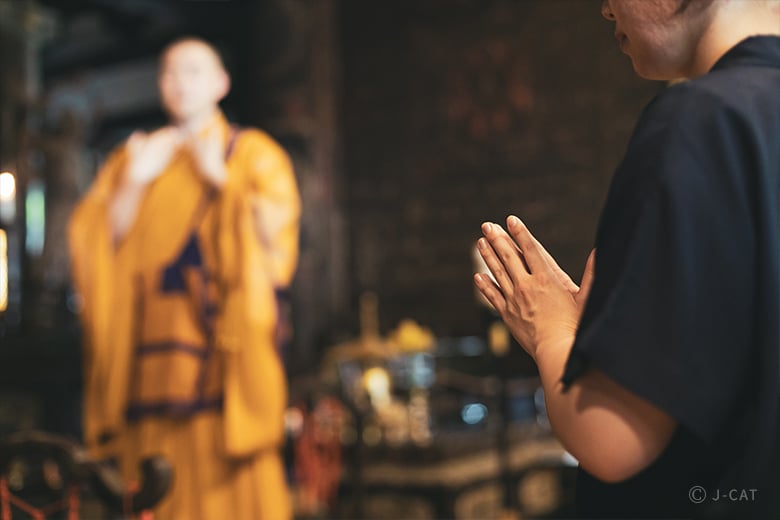
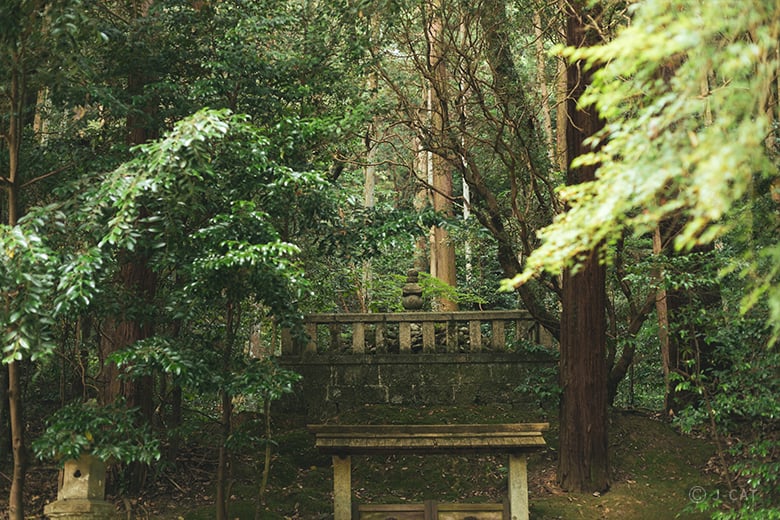
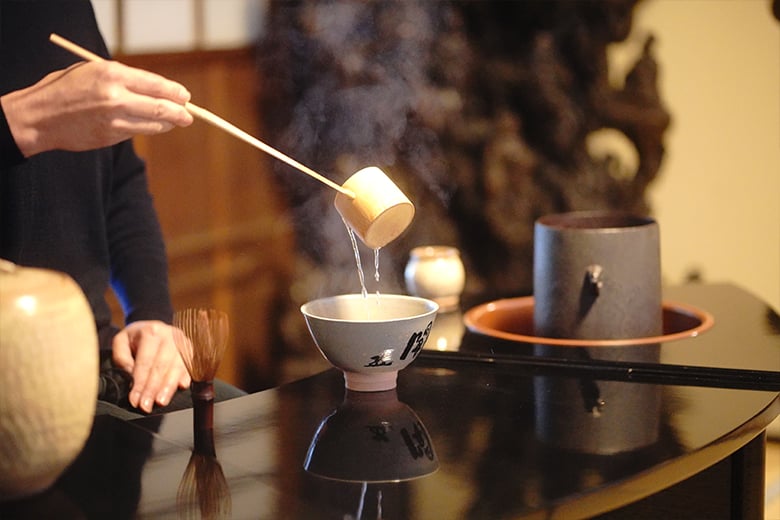
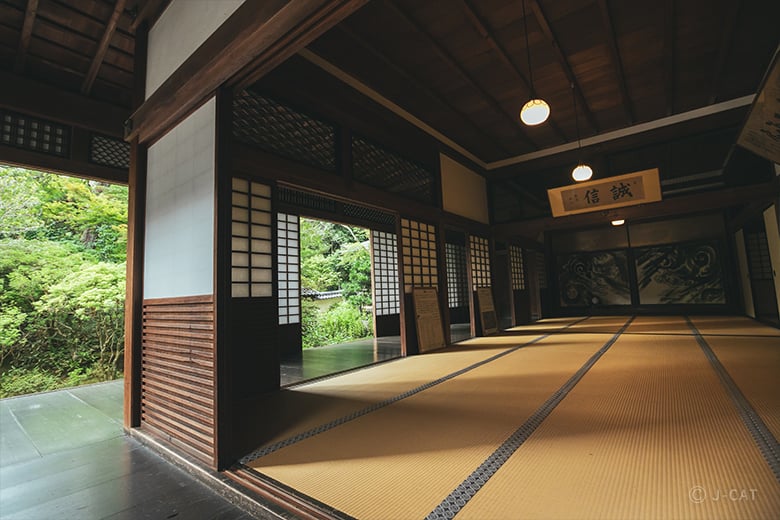
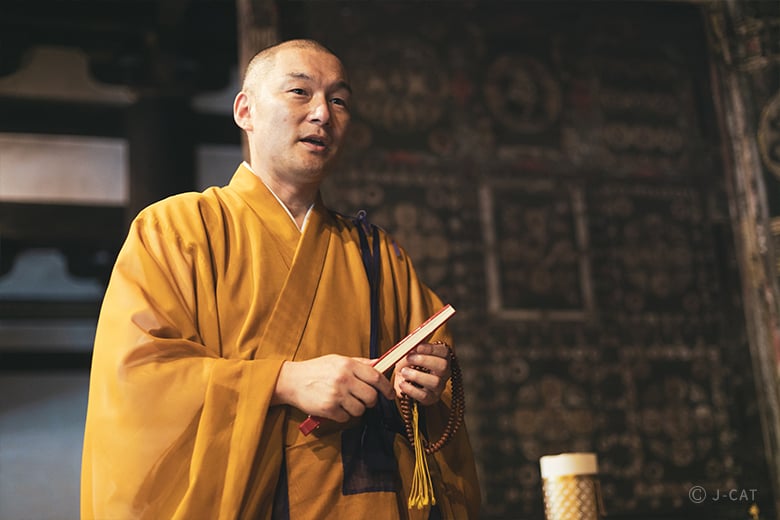
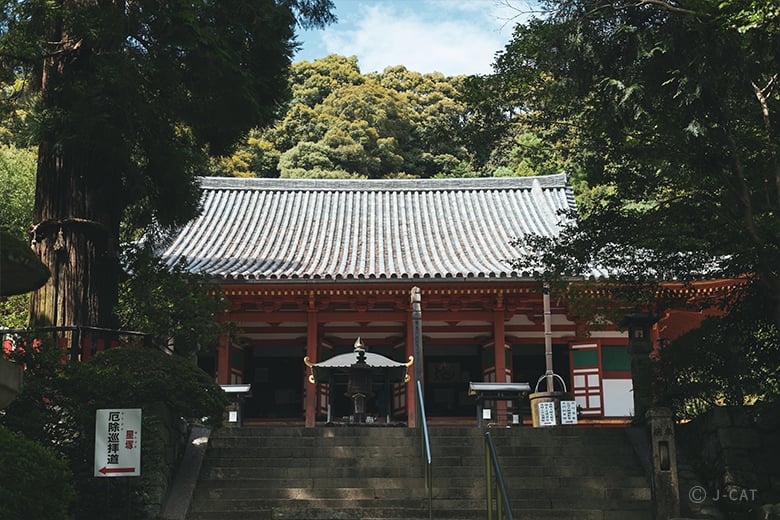
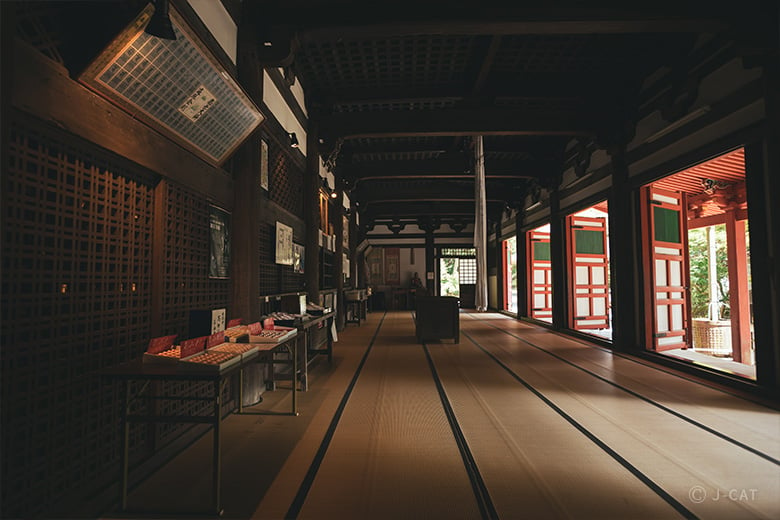
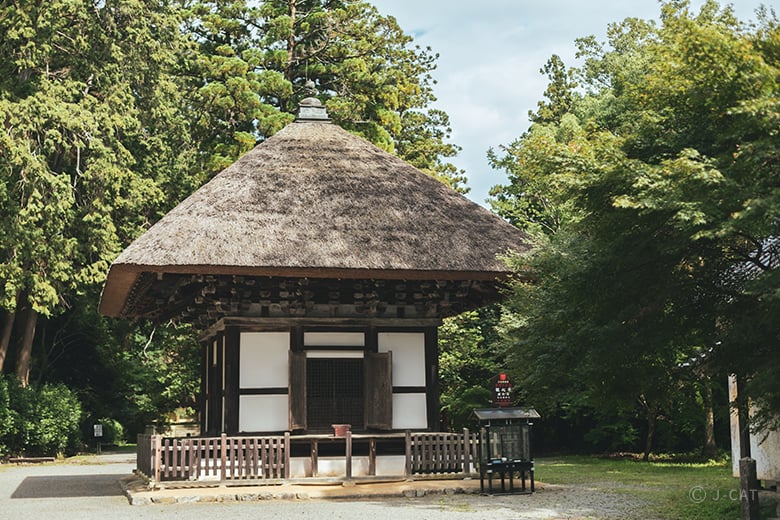
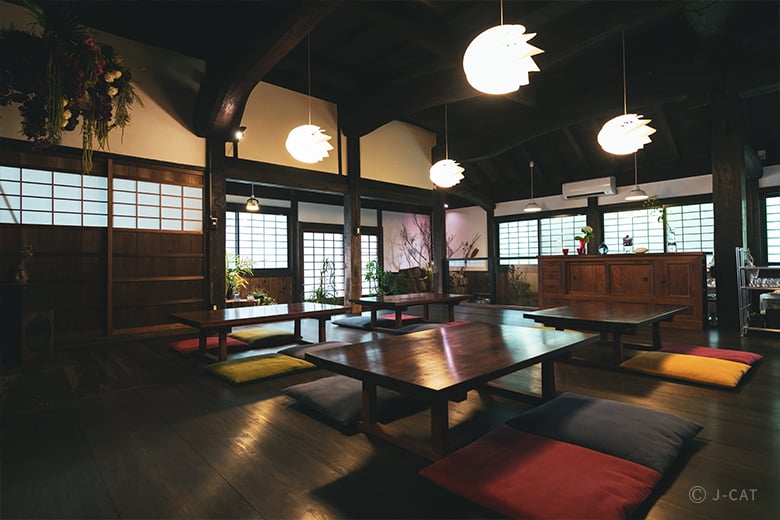
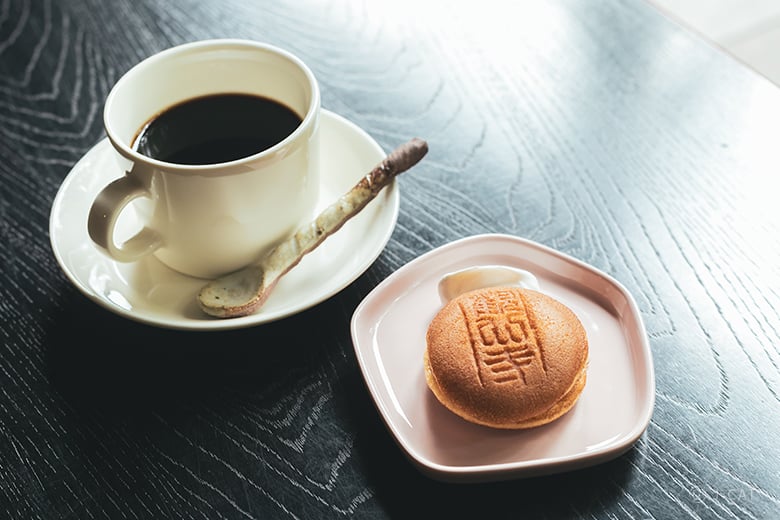
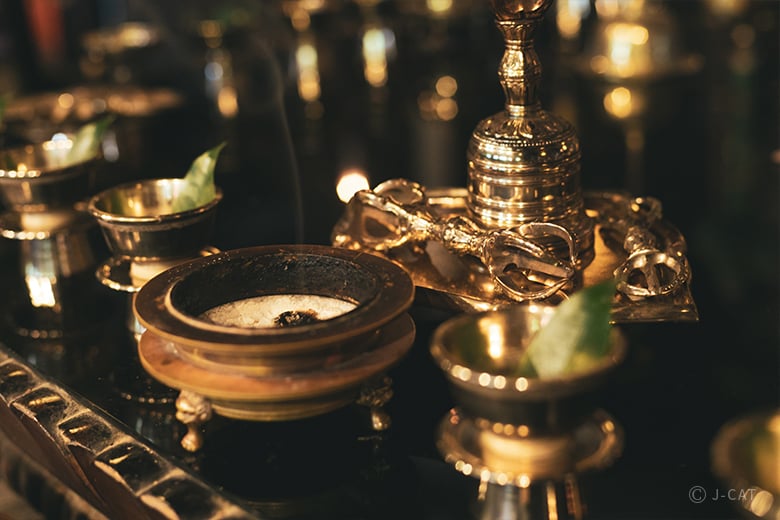
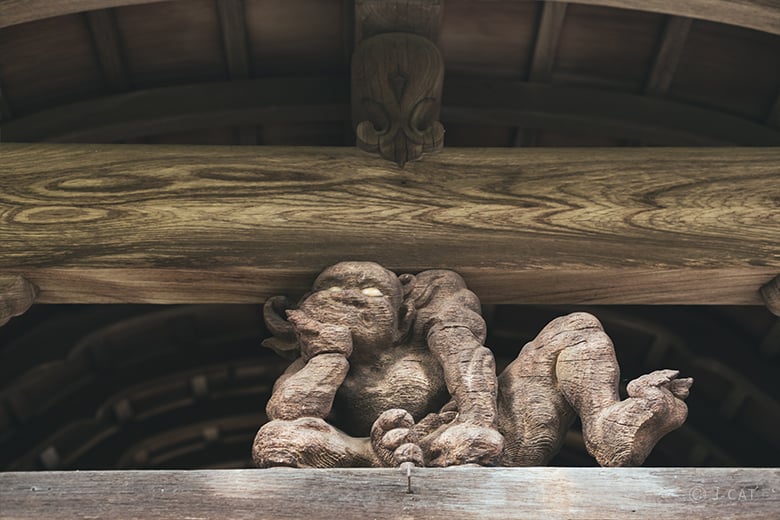












Overview
Kanshinji Temple of the Koyasan Shingon sect of Buddhism was founded by Enno Gyoja, founder of the ascetic syncretic religion of Shugendō. In this Wabunka exclusive, enjoy a special visit to the inner sanctum of its Kondo Hall – not only a national treasure, but one of the oldest in Osaka Prefecture. Take in a sermon from a Buddhist priest and experience meditation and breathing exercises under his guidance. After a leisurely open stroll through the verdant beauty of the temple grounds, enjoy matcha tea and sweets in the adjacent temple study.
Key Features
・A special visit to the inner sanctum of the Kondo Hall at Kanshinji Temple, home to numerous national treasures and important cultural properties, and normally inaccessible to the public.
・Take in a sermon from a Buddhist priest, practice meditation and breathing, and learn practical spiritual techniques for serene self-recognition.
・Cap off the spiritual experience in the temple study – an important cultural property – with matcha tea and original desserts.
Osaka
150mins
from ¥27,000 /person
1 - 10 participants
Available in English
Cancel free up to 11 days prior
Details
A Gateway to More than 13 Centuries of Living History
At the border of the three prefectures of Osaka, Nara, and Wakayama, Kanshinji was founded in 701 by En no Gyoja, legendary originator of the ascetic syncretic religion of Shugendō. In 815, Shingon school founder Kukai carved the statue of the Bodhisattva Nyoirin Kannon, today a national treasure, to serve as the temple’s principal figure of worship. The Kondo Hall, which enshrines this statue, is one of Osaka Prefecture’s oldest recognized national treasures and houses many artifacts recognized as important cultural properties.

The Kondo Hall, a registered national treasure, enshrines the central figure of worship, the Bodhisattva Nyoirin Kannon
Renowned 14th Century general Masashige Kusunoki is also known to have studied Buddhism in his youth, and the temple grounds contain a monument commemorating the spot where he received his orders from Emperor Go-Daigo (96th Emperor of Japan, reigned 1318-1319). Here, visitors can find the Unfinished Tower, an intended three-story pagoda which was never completed, alongside the place where Kusunoki’s head is said to have been interred when it was delivered to the temple by Takauji Ashikaga (first shogun of the Muromachi Shogunate), after Kusunoki sacrificed himself in battle in service of his lord.
Seeking to imbue the temple grounds with the heavenly power of the Big Dipper, which is believed to hold power over life and death, Kukai arranged seven mounds in a three-dimensional seven-star mandala around the statue of the Bodhisattva Nyoirin Kannon. Walking one round of these mounds is said to ward off ill fortune for the year, and worshippers from all over Japan visit this temple to pay their respects.

Masashige Kusunoki’s head is interred on the temple grounds, enshrined in a memorial candidly named the “Head Mound of Lord Kusunoki”
This experience is a rare chance to hear all about Kanshinji Temple directly from the clergyman who resides there, appreciate the presence of the Bodhisattva Nyoirin Kannon up close, and be guided in meditation by a Buddhist priest.
Ponder a Once-in-a-Lifetime Sermon on the Dharma at the National Treasure Kondo Hall
Before the Four Heavenly Kings who stand guard over Kondo Hall’s shumidan, or central altar enshrining the principal icon of worship – which is usually off-limits – receive materials from your priest guide, who will talk you thoughtfully through the history of Kanshinji and the origin of the temple’s name.

Chief Priest Zenkyo Nagashima standing in front of the Mandala of the Two Realms
In addition to the Kanshinji temple itself, learn about the Six Paths and other concepts of Buddhism with in-depth explanations. Discover the meaning behind the Bodhisattva Nyoirin Kannon’s six arms, and the surprising significance of the location of Kanshinji Temple and the Koyasan temple complex.
Gaze into Your Own Mind and Find New Clarity with Meditation and Breathing Techniques
After the sermon on the Dharma, meditate under the priest’s guidance while the fragrance of incense wafts. Relax your shoulders, straighten your back, and hold your palms together at chest level. By bringing your focus inward and letting go of the stressful consuming thoughts of the mundane, you gradually feel a calm emerge. Meditation can be done in any relaxed seated position, whether on the floor cross-legged or kneeling, or seated in a chair.

Straighten your back, and visualize yourself being pulled upward
Next come breathing techniques. Long, thin exhalations through the mouth and deep abdominal inhalations through the nose have a calming effect. Visualize yourself expelling your harmful thoughts with your breath and drawing in pure clean air in their place, and after 30 minutes you will find your mind cleared. When this is finished, embrace the power of the unknown and sow the seeds for your own future by making a wish. With a mindset of humble acceptance, let the Buddha decide what blooms of karma will blossom forth.

The thatch-roofed, wooden “Unfinished Tower,” a nationally designated important cultural property
Meditation and breathing will ease your burdens of body and mind. As you take your leave of the sanctuary, stroll freely through the temple grounds, designated a national historic site. In addition to the memorial to Lord Kusunoki and the “Unfinished Tower,” a designated important cultural property, enjoy the garden’s seasonal delights of cherry and plum blossoms in the spring or autumnal reds and oranges in the fall.
Delight in Matcha Tea and Original Desserts in Kanshinji’s Temple Study
Temple restaurant KU-RI has been widely featured across the media and its tables are in hot demand. Adjacent to the restaurant is the temple study, an important cultural property, where proprietor Waka Nagashima conducts “Ryurei” style tea ceremony and serves select confections (location subject to weather conditions). Coffee is also available for those who prefer it over matcha.

Matcha served in a “Ryurei” style tea ceremony

Coffee available as an optional substitution for matcha. This day’s desert selection is plum dorayaki, a confection made of sweet white bean paste and green ume plum sandwiched between two pancake-like patties (selections change daily)
Relax inside the elegantly-decorated study, taking in the beautiful inlays above the sliding doors, the gorgeous wood latticework, and the inome, a decorative cover over nail protrusions in the shape of a heart, created as a talisman against evil.

The temple study, built of wood leftover from the construction of Osaka Castle
A Moment of Sumptuous Detox for Body and Mind
In the temple’s inner sanctum, normally inaccessible to the public, luxuriate in thirteen centuries of history while practicing meditation and breathing exercises. When you have been refreshed heart and mind, refresh your body with a cozy cup of matcha tea and a traditional Japanese confection, and find yourself leaving with a lighter step than you entered.

Detoxify mind and body through meditation in this private sanctuary, followed by modern Buddhist vegetarian cuisine
Koyasan Shingon Sect Main Temple Kanshinji

Koyasan Shingon Sect Main Temple Kanshinji
Renowned as the seat of Kukai’s Heian Period (794-1180) Shingon School of Buddhism, Kanshinji’s historical import is manifold as the birthplace of the Koyasan sect and also the family temple of legendary samurai Kusunoki Masashige, widely lionized in his own time and today as an ideal paragon of self-sacrificing samurai loyalty.
Its central altar enshrines the image of the Bodhisattva Nyoirin Kannon, the fifth ever national treasure designated by the Japanese government, and its grounds contain over 20 other important cultural properties. Also famous is the temple’s garden of plum and cherry trees, which blossom in spring and redden in fall. Some of the roughly 300 plum trees in its grove are over a century old.
Location
Kanshin-ji
Kawachinagano, Osaka
Request for booking
Select first preferred date (JST)
February 2026
Sun
Mon
Tue
Wed
Thu
Fri
Sat
Instant Booking
Request Booking

17
Full

17
Unavailable
- Instant Booking: Your reservation is confirmed immediately upon payment.
- Request Booking: You will receive confirmation after the host reviews your request.
Osaka
150mins
from ¥27,000 /person
1 - 10 participants
Available in English
Cancel free up to 11 days prior
Things to know
Contact Us
If you have any questions, please contact us using the form below.
We also accept bookings from corporate clients and travel agencies.